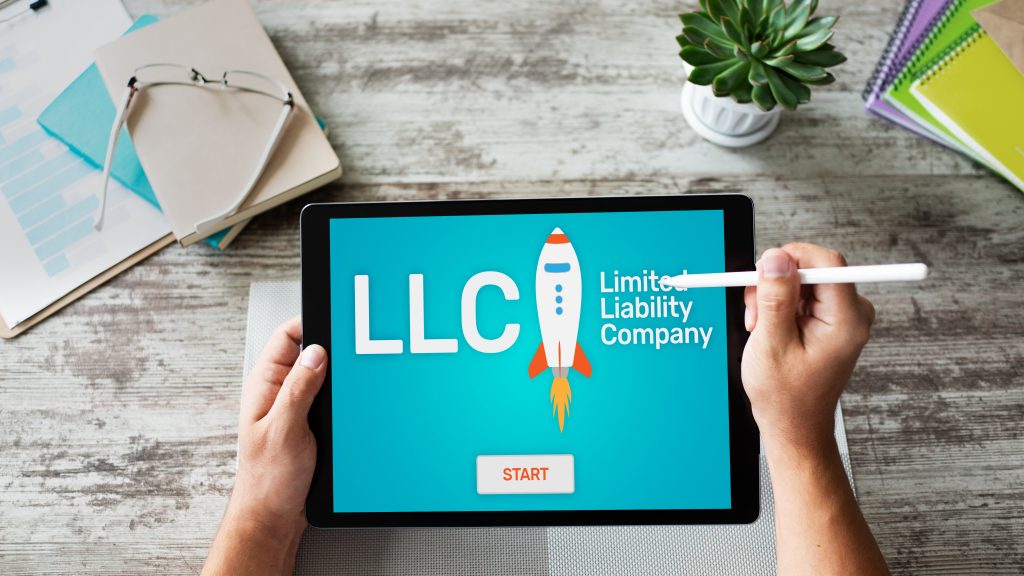Forming an LLC can seem like a daunting process. But it doesn’t have to be.
Starting a business requires careful planning, and choosing the right structure is vital. One popular choice is forming a Limited Liability Company (LLC). This option provides flexibility and protection for business owners. Whether you are a new entrepreneur or looking to restructure an existing business, understanding LLC formation can be beneficial.
In this post, we will guide you through the basics of LLC formation. We will explain the benefits, steps, and considerations involved. Ready to simplify your business journey? Let’s dive in and explore how forming an LLC can support your business goals.

Credit: corpco.com
Introduction To Llc Formation
An LLC stands for Limited Liability Company. It combines features of a corporation and a partnership. Owners are called members. They have limited liability for business debts. LLCs offer flexibility in management and taxation. An LLC can have one or more members. Members can be individuals or other businesses.
Forming an LLC provides limited liability protection. This means personal assets are usually safe from business debts. LLCs offer flexible tax options. They can be taxed as a sole proprietorship, partnership, or corporation. An LLC is easy to set up and maintain. It requires less paperwork than a corporation. LLCs also give a professional image to your business. This can help in gaining customers’ trust.

Credit: gusto.com
Key Steps In Forming An Llc
Pick a state for your LLC. Many choose their home state. Some prefer states with low fees. Delaware and Nevada are popular. Each state has different rules. Research the best option for you.
Choose a unique name for your LLC. The name should end with “LLC” or “Limited Liability Company”. Check if the name is available in your state. You can do this online. The name must not be too similar to another business. Follow your state’s naming rules.
Submit the Articles of Organization to your state. This document creates your LLC. You can file online or by mail. Include details like your LLC name, address, and members. Pay the filing fee. Fees vary by state.
Write an operating agreement for your LLC. This document outlines how your LLC will run. Include roles, responsibilities, and voting rules. Even if not required, it is helpful. It prevents future disputes.
Essential Features And Benefits Of An Llc
Owners are not personally responsible for business debts. This means their personal assets are safe. If the business owes money, creditors can’t take the owner’s house or car. This provides peace of mind. It makes running a business less risky.
An LLC can choose how it wants to be taxed. It can be a sole proprietorship, partnership, or corporation. This offers flexibility. It can help save money on taxes. Owners can pick the best option for their situation.
LLCs can be managed by members or managers. Members are the owners. Managers can be hired to run the business. This allows more freedom. Owners can focus on other tasks. They can hire experts to help manage their LLC.

Credit: www.domyllc.com
Costs And Affordability Of Llc Formation
State filing fees vary widely. Some states charge $50, while others charge over $500. Always check your state’s fee schedule. These fees are required to officially register your LLC.
LLCs must meet ongoing compliance costs. These include annual reports and franchise taxes. Costs differ by state. Some states have low fees, while others charge hundreds of dollars annually. Keeping up with these fees is important to avoid penalties.
Additional services can help manage your LLC. These include legal advice, accounting, and registered agent services. Legal advice can cost $100 to $300 per hour. Accounting services vary based on complexity. Registered agent services typically cost around $100 per year. These services can simplify LLC management but add to overall costs.
Pros And Cons Of Forming An Llc
LLCs offer many benefits. An LLC protects personal assets from business debts. This means your house and car are safe. LLCs have flexible management structures. You can choose how to run your business. LLCs also provide tax advantages. You can avoid double taxation. Profits and losses pass to the owner’s personal tax return. This can save money.
LLCs have some drawbacks. Forming an LLC costs money. Fees can be high in some states. There are also ongoing fees and filings. You must keep up with paperwork. LLCs may face limited growth potential. Investors often prefer corporations. They may not invest in LLCs. This can limit funding options.
Frequently Asked Questions
How Much Does An Llc Cost In Texas?
An LLC in Texas costs $300 to file the Certificate of Formation. Additional fees may apply for other services.
How Much Does It Cost To Establish Llc?
The cost to establish an LLC varies by state, typically ranging from $50 to $500. Additional fees may apply.
How Much Does It Cost To Start An Llc In Nm?
Starting an LLC in New Mexico costs $50 for the filing fee. Additional costs may include legal and service fees.
What Is The Downside Of An Llc?
LLCs can have higher formation and maintenance costs. They may face limited growth potential and investor attraction.
Conclusion
Forming an LLC can be a smart move for your business. It offers many benefits. Protect your personal assets and enjoy tax advantages. The process is straightforward and manageable. Quality Company Formations can help with every step. This support makes it easier to focus on growing your business.
Take the first step today. Secure your business’s future with a well-formed LLC.

